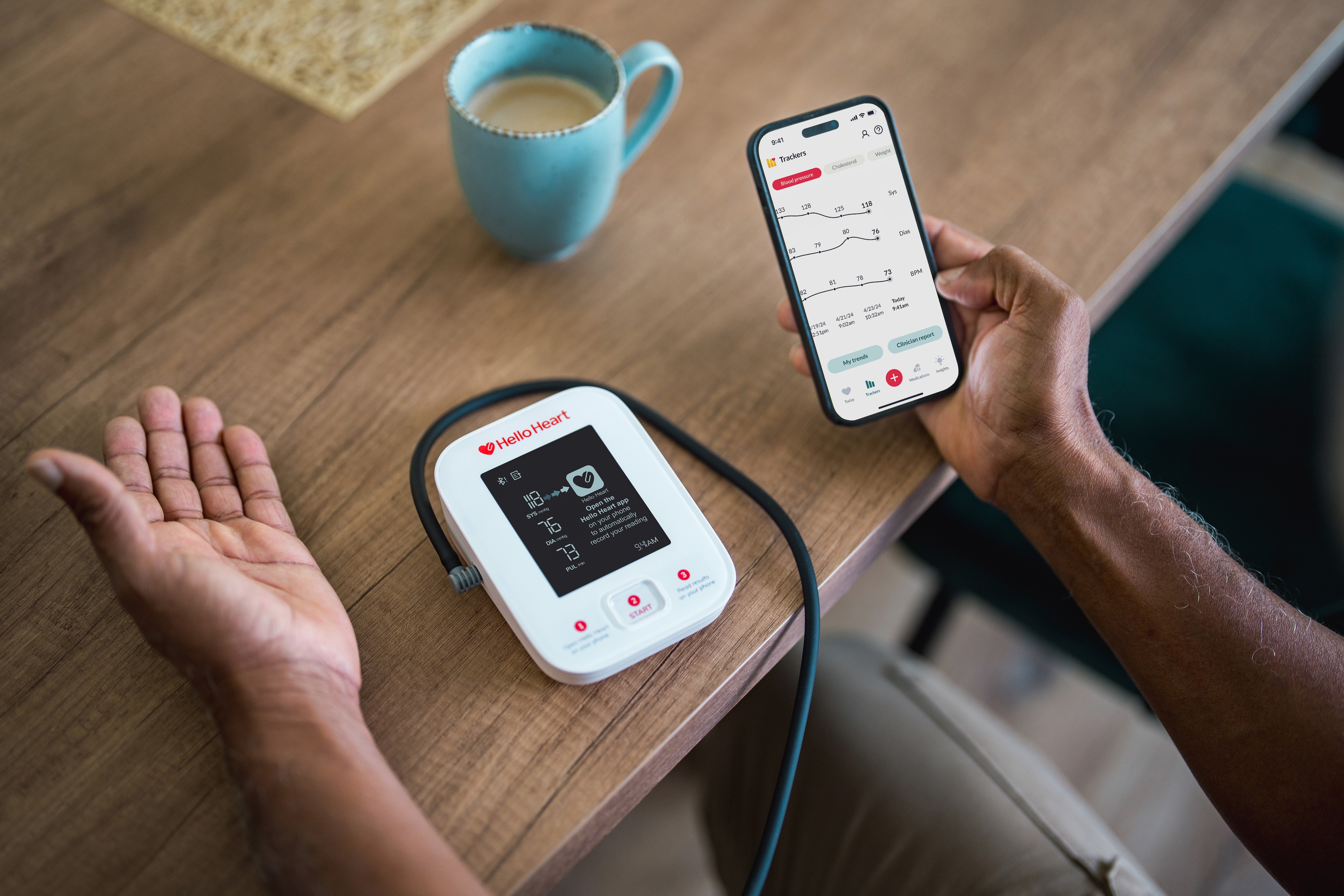
High blood pressure (also called hypertension) is still the #1 risk factor for heart disease and stroke.
Recently, the American Heart Association (AHA) and the American College of Cardiology (ACC) updated their guidelines, with new insights on how lifestyle choices — like diet and stress management — can affect your heart and blood pressure.
At Hello Heart, we believe in progress, not perfection. These guidelines aren’t strict rules that you need to follow 24/7. Better heart health means knowing the facts and making small, realistic changes that fit into your life.
Here are five things to know from the new guidelines, plus simple steps you can take today:
1. Alcohol matters for blood pressure
The updated guidance is clear: less alcohol is better for your heart. Even one or two drinks a day can raise blood pressure over time.
💡 Try this: Swap your glass of wine for sparkling water with fruit.
2. High blood pressure affects your brain, too
New research shows high blood pressure doesn’t just raise heart risks — it’s also linked to memory loss and dementia. Lowering your numbers today can help protect your brain health tomorrow.
💡 Try this: Take your blood pressure at home regularly. Even noticing small improvements can help you stay motivated.
3. Small weight changes can make a difference
You don’t need to lose a large amount of weight to see benefits. Dropping even 5% of your body weight (about 9 pounds if you weigh 180) can lower blood pressure.
💡 Try this: Focus on one small, achievable swap, like choosing roasted potatoes instead of fries, or taking a 10-minute walk after dinner before turning on the TV.
4. Stress shows up on your blood pressure
Daily stress can raise blood pressure more than you think. The new guidelines highlight the importance of managing it.
💡 Try this: Pause for 2 minutes of deep breathing before your next meeting, or try a short guided meditation at the end of each workday.
5. Progress is more powerful than perfection
Guidelines are useful, but no one needs to be perfect. The biggest gains come from small, consistent steps that feel realistic for you.
💡 Try this: Choose one area — alcohol, movement, stress, or sleep — and set a gentle, doable goal for the week. Text that goal to a friend or family member and check back in once a week.
❤️ The bottom line: These new guidelines reinforce what we already know — your everyday choices matter. But they don’t have to be overwhelming.
With Hello Heart, you can track your blood pressure, celebrate small wins, and build healthy habits that last.
Try Hello Heart for your own health.
Eligible members get the Hello Heart Monitor and App at no cost.
👉Check Your Eligibility Here
Learn more about Hello Heart for your team or clients.
Let’s talk about how we can bring this platform to your organization.
👉 Request a Demo
1. Gazit T, Gutman M, Beatty AL. Assessment of Hypertension Control Among Adults Participating in a Mobile Technology Blood Pressure Self-management Program. JAMA Netw Open. 2021;4(10):e2127008, https://doi.org/10.1001/jamanetworkopen.2021.27008. Accessed October 19, 2022. (Some study authors are employed by Hello Heart. Because of the observational nature of the study, causal conclusions cannot be made. See additional important study limitations in the publication. This study showed that 108 participants with baseline blood pressure over 140/90 who had been enrolled in the program for 3 years and had application activity during weeks 148-163 were able to reduce their blood pressure by 21 mmHg using the Hello Heart program.) (2) Livongo Health, Inc. Form S-1 Registration Statement. https:/www.sec.gov/Archives/edgar/data/1639225/000119312519185159/d731249ds1.htm. Published June 28, 2019. Accessed October 19, 2022. (In a pilot study that lasted six weeks, individuals starting with a blood pressure of greater than 140/90 mmHg, on average, had a 10 mmHG reduction.) NOTE: This comparison is not based on a head-to-head study, and the difference in results may be due in part to different study protocols.
2. Validation Institute. 2021 Validation Report (Valid Through October 2022). https://validationinstitute.com/wp-content/uploads/2021/10/Hello_Heart-Savings-2021- Final.pdf. Published October 2021. Accessed October 19, 2022. (This analysis was commissioned by Hello Heart, which provided a summary report of self-fundedemployer client medical claims data for 203 Hello Heart users and 200 non-users from 2017-2020. Findings have not been subjected to peer review.)